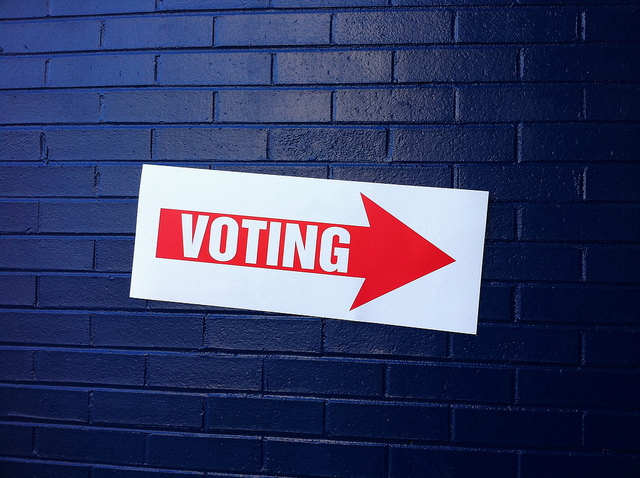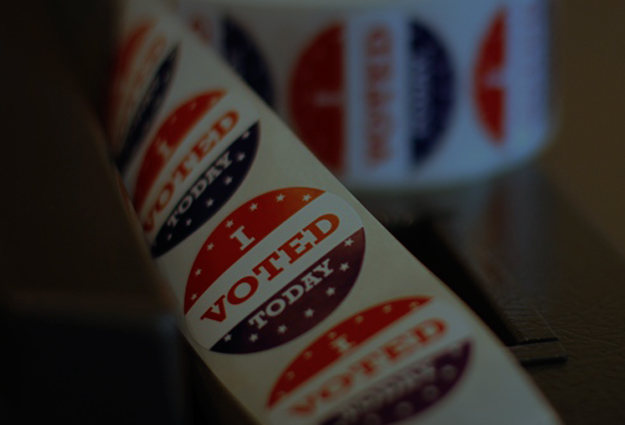New surveys from Public Policy Polling show Hillary Clinton leading Donald Trump by 2 points in North Carolina, 3 points in Nevada, 4 points in Pennsylvania, 5 points in New Hampshire, and 7 points in Wisconsin – all good news for the Clinton campaign just a few days from the 2016 election.
Pennsylvania, New Hampshire and Wisconsin are all part of Clinton’s so-called “firewall” – 21 states (plus Washington, DC) that she’s heavily favored to win. Those states total 273 electoral votes, so if Clinton wins all of them, she’ll win the presidency no matter what happens anywhere else.
But Donald Trump has pulled closer in some of those states, particularly New Hampshire and Pennsylvania. (Real Clear Politics actually shows Trump leading in New Hampshire, and Nate Silver of FiveThirtyEight agrees that New Hampshire is particularly worth watching.) Most surveys still show Clinton leading all her firewall states, but if Trump wins even one of them, other swing states like Nevada, Florida – and North Carolina – suddenly become extremely important. (Speaking in Chapel Hill Wednesday, President Obama said – correctly – that a win for Clinton in North Carolina would effectively guarantee her the White House.)
If you’re seeking good polling news for Clinton, here’s some: according to data from Real Clear Politics, support for Trump appears to peak at 45 percent nationally – and that’s been true all year.
Here’s their chart of Trump and Clinton’s support, tracked over 2016.
Trump got a big polling bounce over the weekend, from 42.5 percent on Saturday to 45.3 percent on Tuesday, after James Comey told Congress the FBI was examining emails on a Clinton aide’s server. That’s the third time this year Trump’s support climbed above 45 percent. (The other two times were right after the GOP convention in July and right after Clinton’s pneumonia scare in September.) But according to RCP, Trump has never gotten to 46 percent – he peaks just above 45 and drops. And it looks like that may be happening again: Trump’s support did not increase on Wednesday, and on Thursday his poll numbers dropped slightly, down to an even 45 percent. (That’s his national support, though – he could still be gaining support in individual states.)
Clinton, meanwhile, has seen her support dip only slightly, from 47.1 percent on Saturday to 46.7 percent today. The Comey letter appears to have swayed some undecided supporters to choose Trump, but it doesn’t seem to have cost Clinton any supporters. And that’s no surprise: Clinton’s email issues have been in the news all year, so anyone supporting Clinton on October 29 was already aware of it. (This is also why Trump’s Access Hollywood video didn’t lose him many votes: the video proved he often talks disrespectfully about women, but Trump supporters already knew that.)
So where do things stand, four days before the election?
Hillary Clinton is still the frontrunner, but her lead is much more tenuous now than it was a week ago. Trump shot up in the polls over the weekend, but his spike has leveled off. FiveThirtyEight.com still has Clinton with a 68 percent chance of winning the presidency, though that’s way down from late October, when Nate Silver said her chances were more like 85 percent. Clinton still leads in the polls, but the polls are always slightly off – and if they’re slightly off in Trump’s favor, in even one of Clinton’s “firewall” states, Election Day could turn into a long night. Trump’s support has never risen above 46 percent nationally all year – but there’s still a larger-than-usual number of undecided voters, and they’re still a wild card with four days left to go.
What does this mean?
It means the race for president is close – so turnout is going to make all the difference.
PPP director Tom Jensen does polling for a living, but even he says it’s worthless to obsess over the polls. If you care about the election, he says, turn off the TV, tune out the pundits, ignore the survey data, and get out to vote. If you really care about the election, he says, don’t just get out to vote – get out and campaign for your candidate. Knock on doors. Make phone calls. Exhort your friends and family to vote.
In other words: keep calm and cast your ballot. From here on out, that’s all that matters.
Tom Jensen spoke with Aaron Keck on WCHL Thursday.






Comments on Chapelboro are moderated according to our Community Guidelines